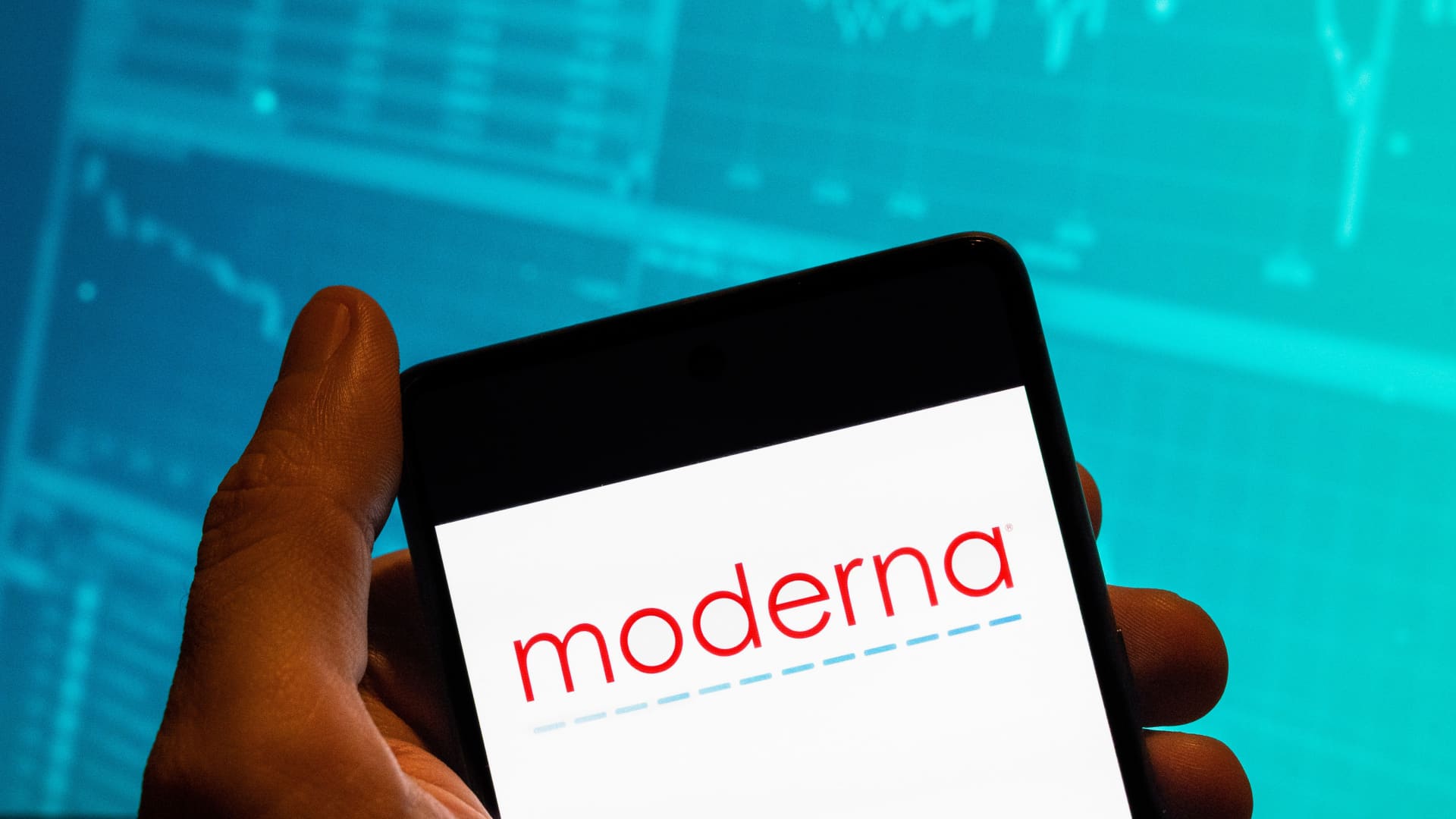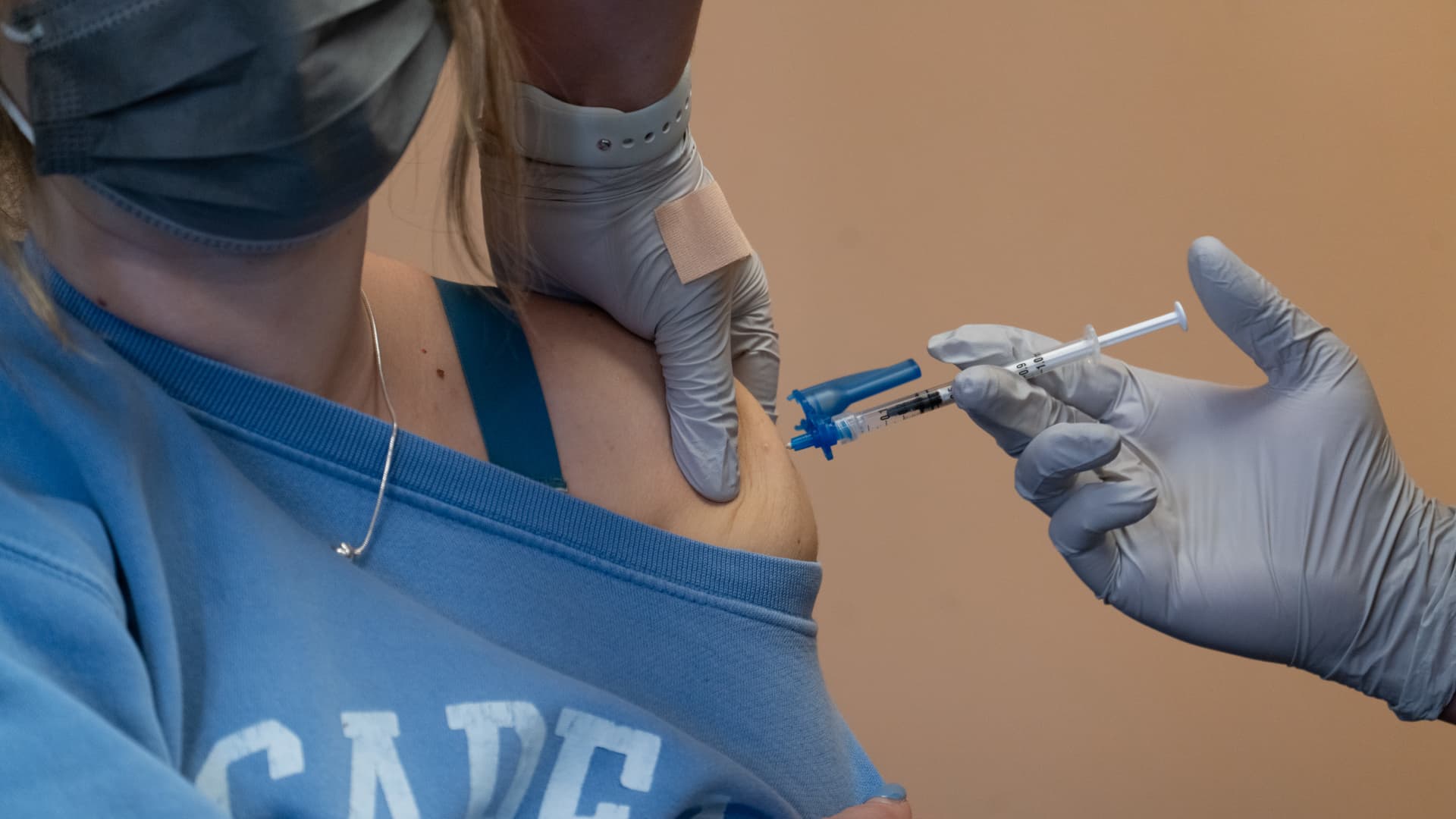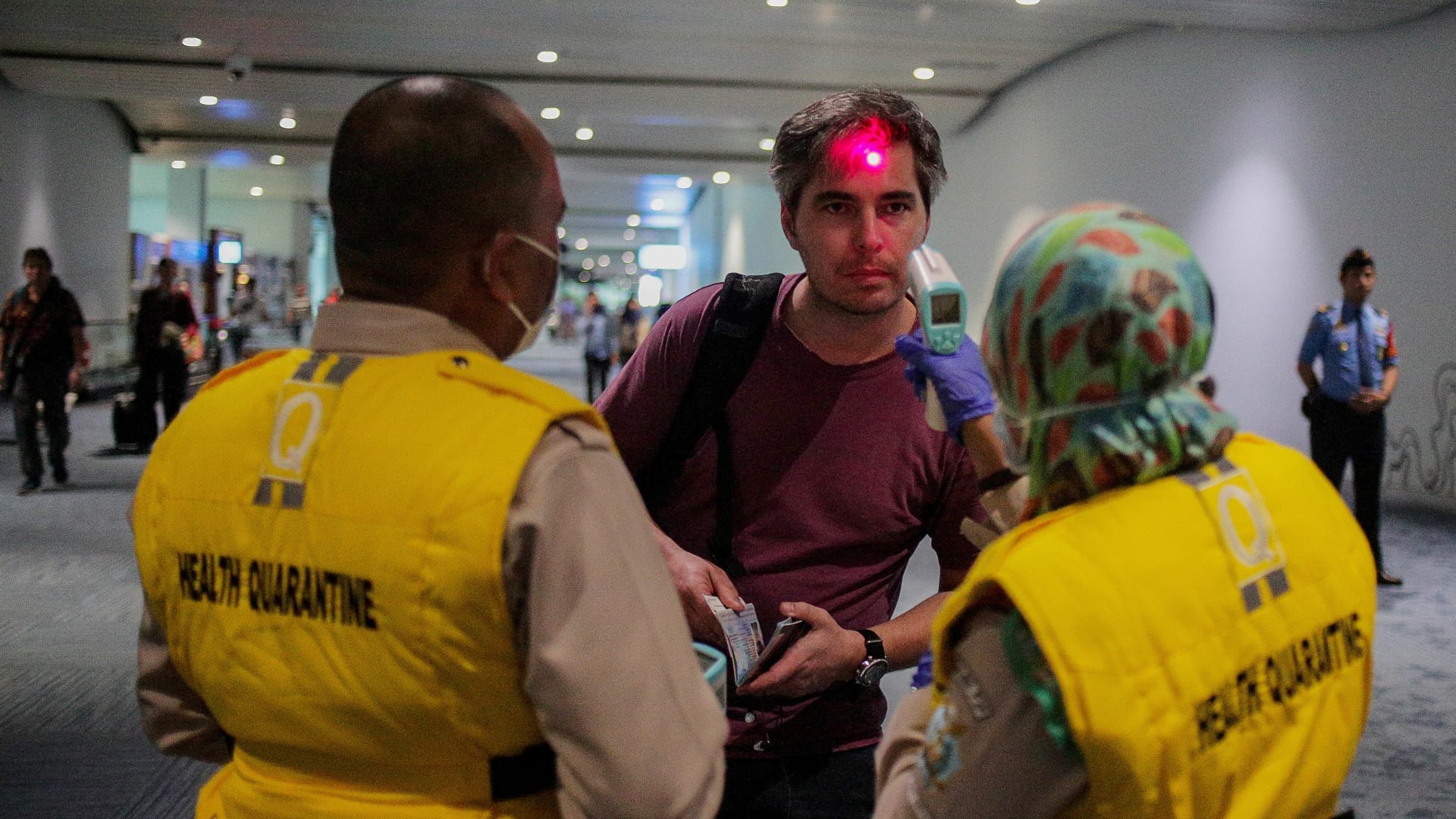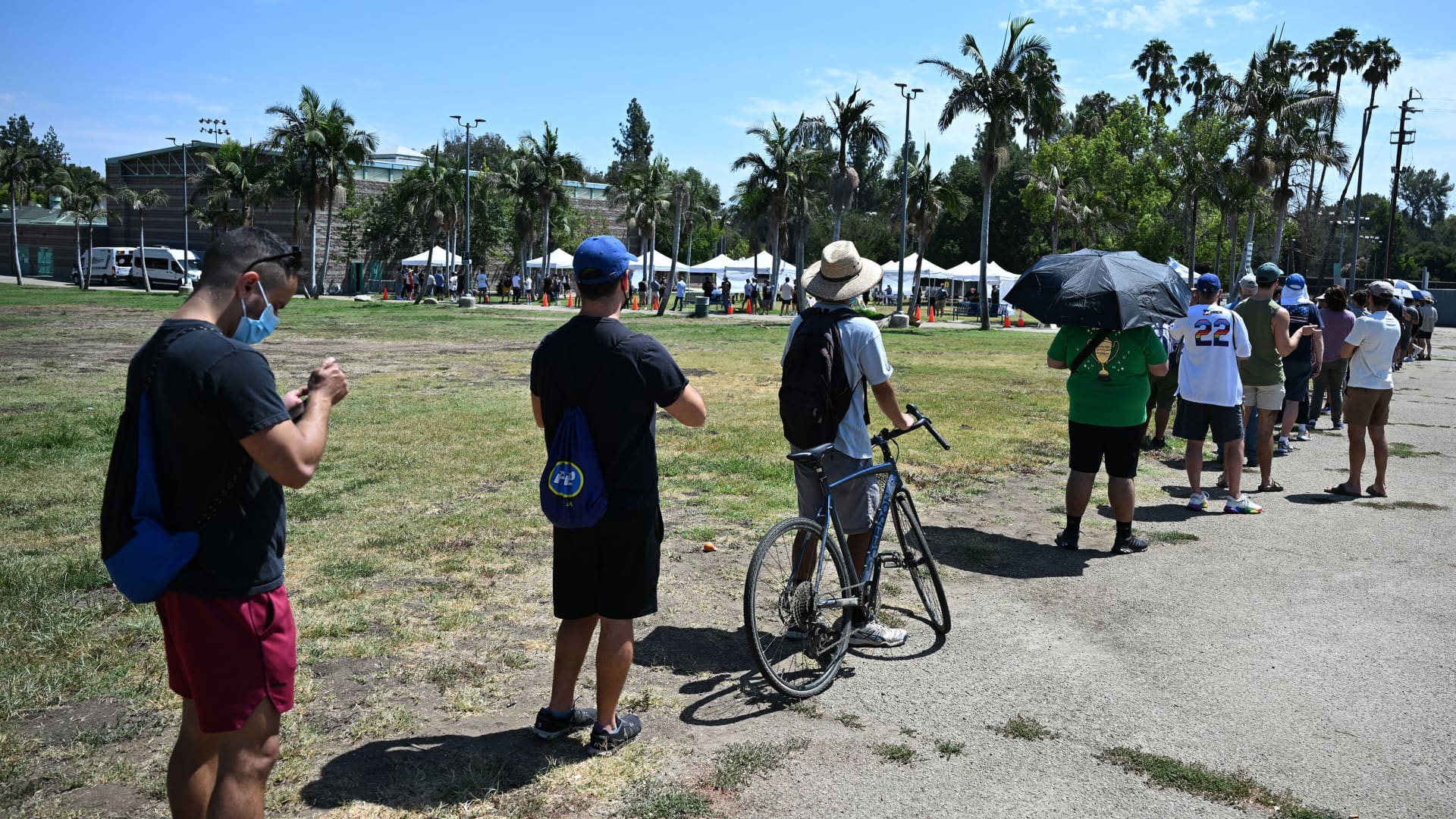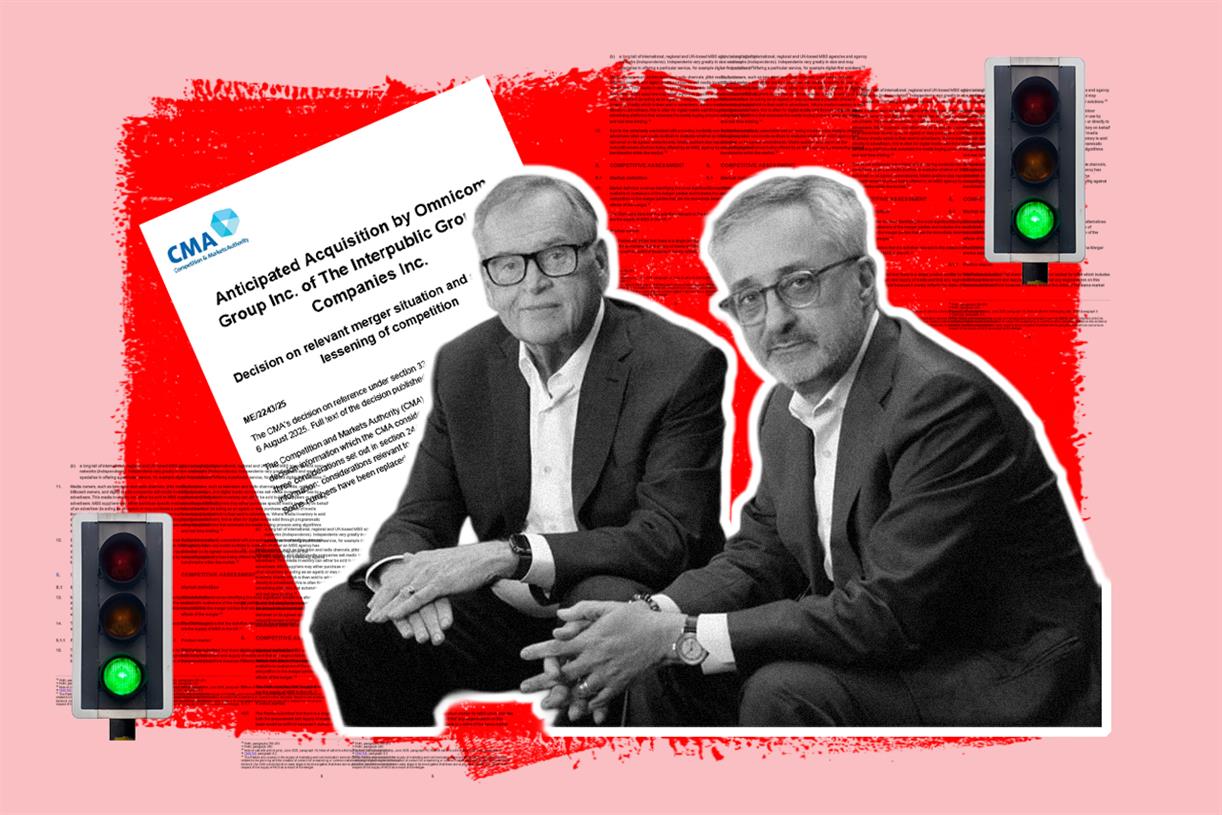The Covid emergency in the U.S. ends May 11. HHS officials say here's what to expect
HHS officials in call with reporters laid out what the the public can expect when the emergency ends.
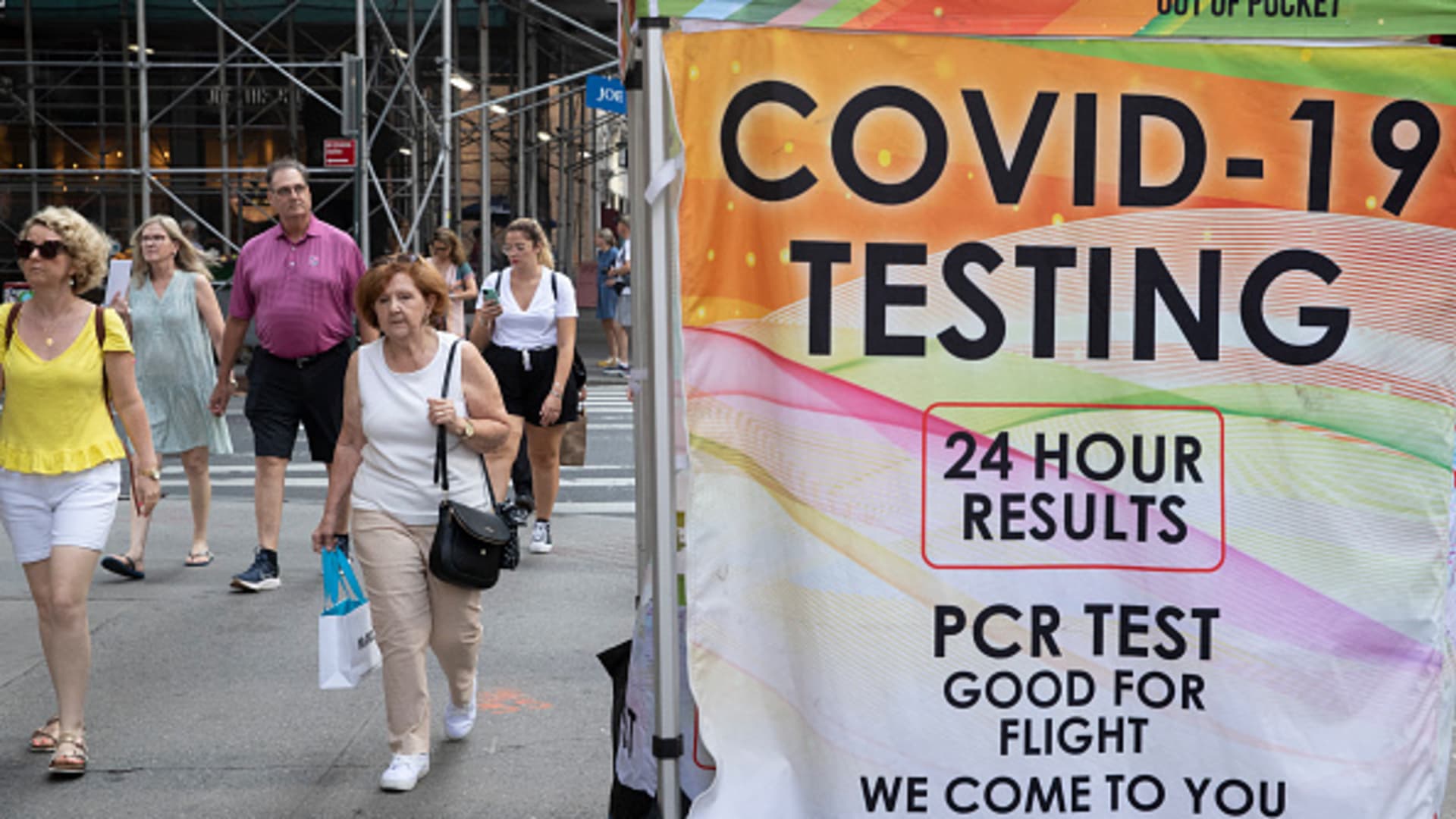
People walk past a COVID-19 walk up testing site on July 28, 2022 in New York City.
Liao Pan | China News Service | Getty Images
The Health and Human Services Department on Thursday laid out what will change and will remain the same when the three-year-long Covid public health emergency ends in May.
Health Secretary Xavier Becerra officially informed the state governors on Thursday that he is renewing the declaration a final time but plans to let the emergency expire on May 11. The White House had already informed Congress of these plans last week.
HHS officials in call with reporters laid out what the the public can expect when the emergency ends.
Immediate changes:
Longer-term changes
The Food and Drug Administration will still have the authority to rapidly authorize Covid vaccines, tests and treatments through its separate emergency powers.
Millions of people are also at risk of losing health insurance through Medicaid this year as federal protections that kept people covered during the pandemic come to an end. These protections were once tied to the public health emergency, but Congress then decided to phase them out separately.
In short, states can start kicking people off Medicaid as early as April if they no longer meet eligibility requirements for the public health insurance program. HHS plans to open a special enrollment period so these individuals can apply for coverage through the Affordable Care Act.
Although Covid vaccines and treatments will remain free for everyone after the public health emergency ends, this may change for uninsured adults when the federal stockpile runs out.
The Biden administration plans to stop buying vaccines and treatments for the public as early as this fall in part because Congress has not appropriated additional funding. When the federal government pulls out, vaccines and treatments will be purchased and distributed through the private market.
This means Pfizer and Moderna will sell the shots directly to health-care providers and whether you pay will depend on whether you are insured.
People with insurance through the Affordable Care Act and Medicare will still get the shots for for free. Those on Medicaid will get the shots for free through September 2024, after which coverage will vary from state to state.
Adults who are uninsured will likely have to pay for the shots when the stockpile runs out, though the White House has said it's developing plans to help them.

 Aliver
Aliver 







